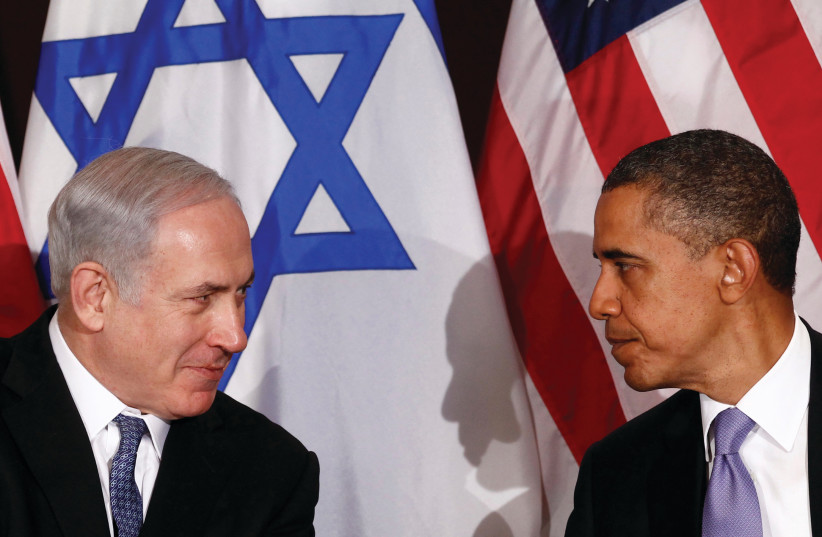The chaos unleashed by Prime Minister Benjamin Netanyahu’s push for a judicial overhaul is now a potential danger to US-Israel relations.
While the prime minister and his coalition seem to think that a few statements appearing to back away from the radical changes will be enough to calm the waters, the reality is beginning to sink in. It is essential now that the government move to assure key allies like the United States that Israel remains a strong democracy and that chaotic decisions such as changes to checks and balances in our governing system will not upset bilateral ties.
US President Joe Biden has said there won’t be an invite for Netanyahu to the White House in the “near term.” This came after reports appeared to indicate that the prime minister might be invited to meet Biden after having temporarily shelved the judicial reforms. Biden has now said explicitly that he hopes Israel walks away from these changes.
“Like many strong supporters of Israel, I am very concerned,” Biden said. “I am concerned that they get this straight. They cannot continue down this road. I have sort of made that clear.”
Benjamin Netanyahu pushes back
Netanyahu’s response came late Tuesday, when he pushed back against Biden’s remarks.

“Israel is a sovereign country which makes its decisions by the will of its people and not based on pressures from abroad, including from the best of friends,” he said.
Netanyahu’s coalition partners have also taken this opportunity to slam the US. National Security Minister Itamar Ben-Gvir lashed out at Biden’s remarks, and Culture and Sport Minister Miki Zohar also said the White House had fallen for “fake news.”
None of these comments are helpful. The crisis in Israel is entirely of Netanyahu’s making. He could have decided last year, after receiving an impressive electoral mandate to form a right-wing government, to hold talks with the opposition to discuss judicial reforms or the formulation of a constitution. Democracies thrive best on compromise and moderation. That is why the strongest and oldest democracies have checks and balances on populist power and advance major reforms slowly and cautiously.
Israel’s ruling coalition sought to bulldoze through a number of radical changes, without consultation and without any semblance of order. The judicial reforms were not handled in a responsible way.
The chaos unleashed by the reforms appears to bear the hallmarks of past Netanyahu methods of poorly thought-out decisions, such as his rush to push the annexation of West Bank territory in 2020 and his waffling on issues such as egalitarian prayer at the Western Wall or the Prawer Plan to resolve land use in the Negev. Netanyahu’s recent decision to fire Defense Minister Yoav Gallant, and then apparently let him remain in his position without any clarity regarding the dismissal process, leaves Israel’s allies wondering whether Israel’s security is in stable hands.
Extreme voices seeking to sabotage the US-Israel alliance
There have always been extreme voices in Israel that seek to sabotage Israel’s alliance with the US. Those behind such voices tend to believe Israel would do better if it were untethered from the West and believe it should cozy up to authoritarian regimes or purposely isolate itself. This is a recipe for disaster, especially in a fast-changing world in which countries such as China are brokering deals between Iran and the Saudis and after Russia invaded Ukraine.
Israel cannot sit on the sidelines. We have an ally in the US, and we are part of the democratic world order. There is no alternative, and there shouldn’t be a sense that drifting away from our democratic friends will benefit Israel.
Netanyahu has done this before. During the Obama administration, he sought to define himself in opposition to US plans for an Iran deal, thriving off friction with the White House. This was ill-judged and harmed Israel’s ties with some rising members of the Democratic Party. Our goal must be to listen to our friends abroad regarding judicial reform and other issues.
We can still make changes to how we appoint judges and on other matters, but our democratic friends have wise counsel to offer about which types of changes will unleash chaos and which may strengthen our democracy.
It is time to resolve the tensions with the US and chart a new course of compromise that displays how our strong and stable democracy has grown from the recent crisis.
